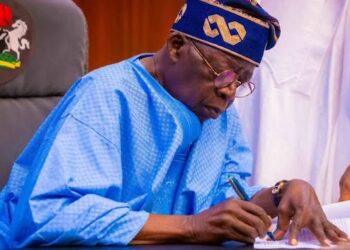 The National Youth Council of Nigeria (NYCN) has commended the Independent National Electoral Commission (INEC) over the successful conduct of the Bauchi South Senatorial bye-election.
The National Youth Council of Nigeria (NYCN) has commended the Independent National Electoral Commission (INEC) over the successful conduct of the Bauchi South Senatorial bye-election.
The council, which monitored the Aug. 11 election, conveyed its observations in a communique signed by Comrade Obinna Nwaka, NYCN’s Acting Director, Directorate of Political and Democratic Matters.
The communique was made available to newsmen on Sunday in Abuja.
Nwaka said that NYCN, under the new leadership of Bello Shagari, was accredited by the INEC to observe the bye-election.
He congratulated the Senator elect, Lawal Gumau and also implored the All Progressives Congress(APC)’s candidate him to deliver the promises made to his constituency.
“We commend the INEC for its courage to ensure that the election process was concluded and declaration of winner was announced as expected by the electorates and political parties.
“We commend the assigned security agencies for their civil approach, commitment to peaceful election and ensuring a secured environment for electorates to cast their votes despite the tension before the election.
“We commend the youths in Bauchi State for their peaceful coexistence, political participation and proper conducts during the election.
“We commend Comrade Umar Lauya, the Bauchi State Chairman of NYCN and his few executive for their participation as observers for the Bauchi South Senatorial Bye-Election 2018.
“We finally commend the Returning Officer for taking his time to enlighten and sensitise both the stakeholders present and the Local Government Areas(LGAs) Returning Officers before the commencement of the collation.’’
Nwaka, however, raised concerns over failure of card readers in some polling units in few LGAs which prompted the ad hoc staff to use the manual method of accreditation.
He said that the council observed disobedient of electoral laws following the movement of vehicles and business operation in the major roads during voting.
The director said that the council also observed that there was poor voter education and inadequate sensitisation of the electorate on how to cast their votes properly.












